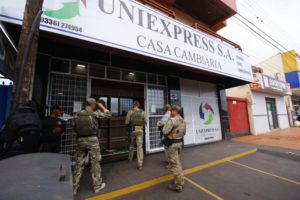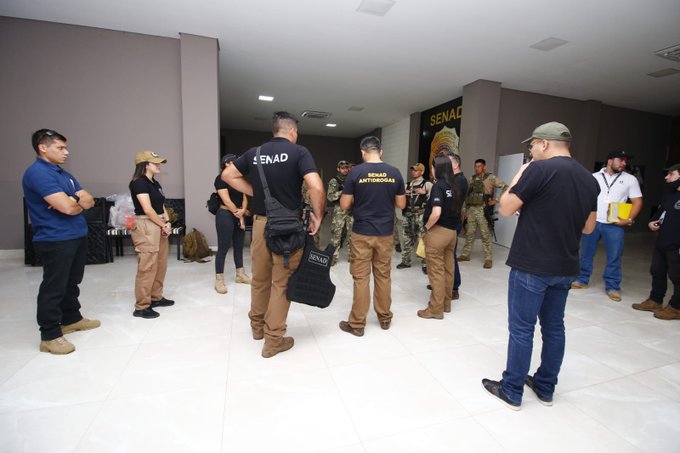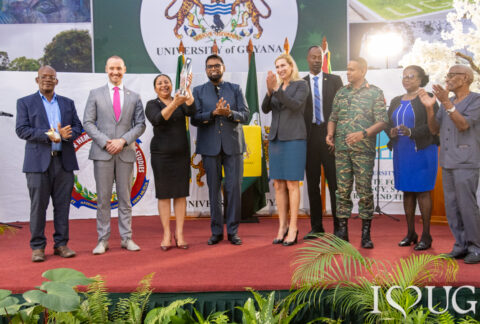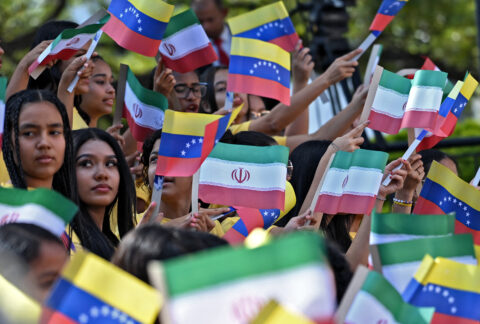On February 3, 2022, the Brazilian Federal Police (PF, in Portuguese) and the Paraguayan National Anti-Drug Secretariat (SENAD, in Spanish) carried out Operation Capital Flow to dismantle a drug money laundering scheme. The criminal network was making million-dollar transactions with the use of strawmen, accountants, and front companies.
“[In Brazil], police took to the streets to serve 39 search and seizure warrants and 19 temporary arrest warrants in six states,” the PF said in a statement. In Paraguay, security forces served at least seven search and seizure warrants in the Pedro Juan Caballero region.
Authorities in both countries also seized real estate, blocked bank accounts, suspended the activities of companies involved, and cancelled the professional licenses of the accountants under investigation. These actions were carried out in coordination with the Paraguayan Public Ministry.

According to the PF, companies controlled directly or indirectly by only one of the suspect under investigation moved some $780 million. Police officers seized about $2.3 million in cash during the course of the investigations. “Money changers and owners of exchange houses located in Paraguay controlled the flow of money,” reported Brazilian news site R7.
García Morínigo Clan
According to authorities, the laundering network is linked to the García Morínigo Clan, one of the largest narcotrafficking ring in the region that controlled a large part of the cocaine market between Paraguay and Brazil, whose leaders SENAD captured during Operation Status in September 2020. “The investigation points to a scheme of individuals and legal entities that permanently received large sums of money through electronic transactions, from several countries,” Paraguay state-run news agency Agencia de Información Paraguaya reported.
Part of the remittances were made from Pedro Juan Caballero. Investigators detected daily transfers of $1.5 to $2 million made from this Paraguayan city to accounts in Brazil. Other individuals or companies in Paraguayan territory, usually in Ciudad del Este, would immediately withdraw the remittances in cash, SENAD reported.
Cabeça Branca
According to authorities, the money laundering scheme is also linked to narcotrafficker Luiz Carlos da Rocha, alias Cabeça Branca. A drug supplier for Brazilian criminal factions, including the Red Command and the First Capital Command (PCC, in Portuguese), Rocha was arrested in 2017 in the PF’s Operation Spectrum.
“In 2018, the PF discovered evidence that one of the narcotrafficker’s daughters and one of the sons of drug lord Carlos Alexandre Souza, [alias] Ceará, studied at one of the most expensive schools in Switzerland,” Brazilian website Campo Grande News reported. “It was suspected that the presence of the two was a pretext to send [drug] trafficking money abroad,” the website added.
Alias Ceará, whom the PF also arrested, was one of alias Cabeça Branca’s main financial operators. He was in charge of deposits, transfers, and illegal exchange operations with money from narcotrafficking. Investigations indicate that the group was not limited to laundering Rocha’s money. It also maintained a relationship with several other criminal organizations operating in Brazilian territory, the PF said.









